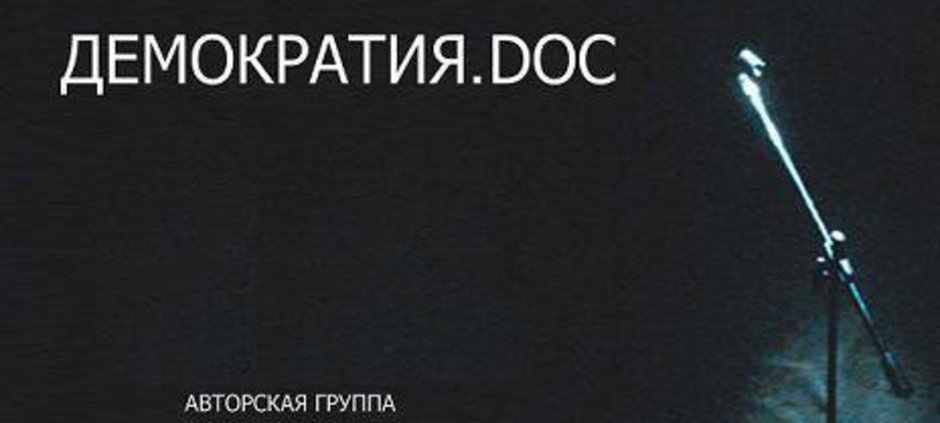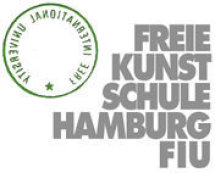Democracy.doc was founded in 2006 by the german director and curator Georg Genoux. The work focuses on creating interdisciplinary dialogue on the topic of democracy, especially in Eastern Europe. Its does not apply the methods of conventional art and performance. The work does not cater to the art world. It seeks to perform crisis interventions and asks participants to take an active position on social issues. Democracy.doc organized more than 80 theatre and film projects in Russia, Ukraine, Bulgaria, and Germany, which participated at theatre- film and art festivals in Berlin, Warschau, London, Hamburg, Basel, St.Petersburg, Kiev, Riga, Helsinki, Talin, Jerewan, Sofia, Moscow, Porto etc. The interactive performance Demokratia.doc toured since 2006 through more than 50 Russian towns, confronting Russian citizens with questions about their understanding of democracy. 2012 Demokratia.doc was presented at the 7th Biennale for contemporary Art in Berlin and the 5th Biennale for contemporary Art in Moscow. Also in 2012 Georg Genoux staged the Joseph Beuys text “A Call for an Alternative” as part of the Joseph Beuys exhibition in Moscow. 2014 the President of the Republic of Bulgaria Rossen Plewneliew presented the Award "Stojan Kambarev" for contemporary art to Teatr Replika for their projects, which they developed together with director Georg Genoux at Democracy.doc’s laboratory NEDRAma. In 2017 the film "School #3" by Liza Smith and Georg Genoux got the Grand Prix Award by the program "Generation 14+" of the 67th Berlin Filmfestspiele (Berlinale). Democracy.doc was co-founder of social - and art projects like the Joseph Beuys Theatre in Moscow, the international theatre laboratory and festival NEDRAma in Sofia and the Theatre of Displaced People in Kiev. There were cooperations with Theatre.doc and National Center of Contemporary Art (NCCA) in Moscow. 2010 - 2012 Democracy.doc developed the theatre programming for Moscow’s Sakharov Centre and the Memorial Society. In 2012 Georg Genoux was the curator of the theatre program "Breaking the borders" at the Sakharov Centre, supported by the European Commission and the curator of the theatre program "Memory Drama" at Memorial Society, supported by USID. In Bulgaria Democracy.doc collaborated with The Red House Centre for Culture and Debate and Theatre Replika in Sofia. September 2016 Democracy.doc and Theatre of Displaced People organized the theatre program "Stage of Displaced People" at Gogolfest 2016 in Kiev, supported by the UN Agency for Refugees in Ukraine (UNHCR). Since 2018 Democracy.doc is collaborating together with film production company “Boekamp & Kriegsheim (Berlin)” on new film and theatre projects, for example “The country I don’t know” about the relation of migrants and german citizens in Saxony (Germany). Projects by Democracy.doc were founded by the Goethe Institute, the German Ministry of Foreign Affairs, European Commission, Austrian Ministry of Foreign Affairs, the UN Refugee Agency in Ukraine etc. Democracy.doc began as an interactive performance and later developed into a program of interdisciplinary projects.
The Democracy.doc Philosophy Democracy.doc is inspired by Joseph Beuys’s idea of social sculpture. As Joseph Beuys wrote, our creative work has the potential to lead us out of the “ghetto of art” and into lived experience. To this end, we do not apply the methods of conventional art and performance. Our work does not cater to the art world. It seeks to perform crisis interventions and asks participants to take an active position on social issues. Democracy.doc creates an inclusive and interactive space where we can explore the role of contemporary artists. Ours is an anti-elite work open to all, everyone is invited to participate. We believe in what we call 'Healing Theatre'. It is a different kind of theatre research in which all participants (both artists and audiences) take active roles in the performances. Everyone makes a contribution and, in that sense, every participant becomes an artist. We also conduct one on one work with individuals who use theatre methods to come to terms with their own life crises. Sometimes the results of this process are also shared with the public. Our work on Democracy.doc has also inspired the development of ‘Memory Drama’, a genre in which we explore individual and collective histories through performance. According to the German artist Udo Kultermann, the artist is the shaman of contemporary society. They not only produce objects, but perform an act of self-sacrifice for the sake of society. Through this process of sacrifice, he or she stimulates the healing process in others. One must accept one’s own healing process. Our theatre facilitates contact with the HERE and NOW and asks participants to confront their own personal pain and fears. We work in the spirit of Joseph Beuys's words, 'You must show your wounds in order to be healed. If you do not show your wounds, you cannot be healed'. These projects also have a theoretical component. The Democracy.doc collective is planning to publish a series of scholarly and theoretical studies that investigate the connections between contemporary theatre and everyday life. At the end of 2013, Elena Margo began offering a series of lectures about her experiences traversing the boundaries between theatre, therapy, and psychology. She has presented her work at the National Center of Contemporary Art (NCCA) in Moscow, the University of Portland (USA), the summit 'World Work in Warsaw’ summit on politics and consciousness in the changing world, and at the Goethe Institute in Sofia.
The project Democracy.doc The Democracy.doc production team works closely with other theatres, arts collectives and organizations that produce interdisciplinary, contemporary, documentary, political social, interactive and therapeutic arts projects. ""Documentary theatre has developed from а niche experiment for a narrow audience to a definite trend that has notably evolved onstage practice at the heart of which are documentary interviews........The activity of Theatre of Displaced People (the work of director Georg Genoux and playwright Natalia Vorozhbyt) played an important role in the development of this movement. The fundamental focus of this team has become the war in the East of Ukraine and the fate of people who have fallen under the wheels of history. The activity of the Theatre of Displaced People has gone far outside the frame of theatrical form. It has also become a centre of psychological adaptation for people from the East and Crimea as well as the envoy of peace in areas close to the conflict zone. Free from loud declarations and bathetic announcements, the team has done much more in the matter of establishing dialogue and exhibiting loyalty to displaced people from Donbass than all the state programmes put together…"
"Ukrayinska Pravda" about Theatre of Displaced People., founded by Democracy.doc (22th December 2016).
The Performance Demokratia.doc
Demokratia.doc is neither traditional theatre nor a ‘verbatim’ experiment. It is a collaborative and interdisciplinary project that has developed over the past nine years. In 2005 two Russian playwrights, Nina Belenitskaya and Ivan Ugarov, along with the German director Georg Genoux interviewed over 100 Russian citizens from different regions around the country. After analyzing the interviews, the creative team became curious about how certain subconscious attitudes might influence the way Russian people understand the role politics and democracy play in contemporary Russian culture. In 2006 they invited two psychotherapists, Elena Margo and Arman Bekenov, to join the creative team and to conduct a series of training sessions held at Moscow’s leading documentary theatre venue, Teatr.doc. These workshops were the beginning of the project now known as Demokratia.doc.
No two Demokratia.doc performances are alike as the audience plays an active role in all of the shows. Though the original production was based on documentary materials from 1991-2005, the play is constantly changing as a result of the audiences’ participation. Demokratia.doc is an interactive performance. There are no actors, and the audience participates in the action onstage. The creators of the show draw on the principles of ‘World Work’, an approach to conflict resolution and community building developed by Drs. Arnold and Amy Mindell. Through their use of the ‘World Work’ principles, the creators of Demokratia.doc offer their audiences the opportunity to explore their own relationships to democracy. Audience members are not asked to confront questions about their understanding of democracy, they are asked to articulate how they experience it in their everyday lives. This is a sensitive question. It often leads to powerful conflicts onstage that clearly reflect certain tensions in the culture. In a society where many sensitive topics are suppressed and ignored, the theatre takes on an important responsibility. It gives voice to people from all different sectors of society, especially those which are generally marginalized or relegated to the periphery. There are no actors in Demokratia.doc. There is no recitation or memorized texts and no attempt to replicate reality onstage. Demokratia.doc creates a space for its participants to articulate certain sentiments that are often left unspoken and unexplored. Right before our eyes ordinary people become spectators, actors, directors and characters all at the same time. We have performed Demokratia.doc more than 50 times in Moscow and in more than 50 other cities throughout Russia. We also performed Democracy.doc at numerous venues in Switzerland (Basel and Chur) as participants in the “Culture Capes” Russian/Swiss exchange of 2012.



